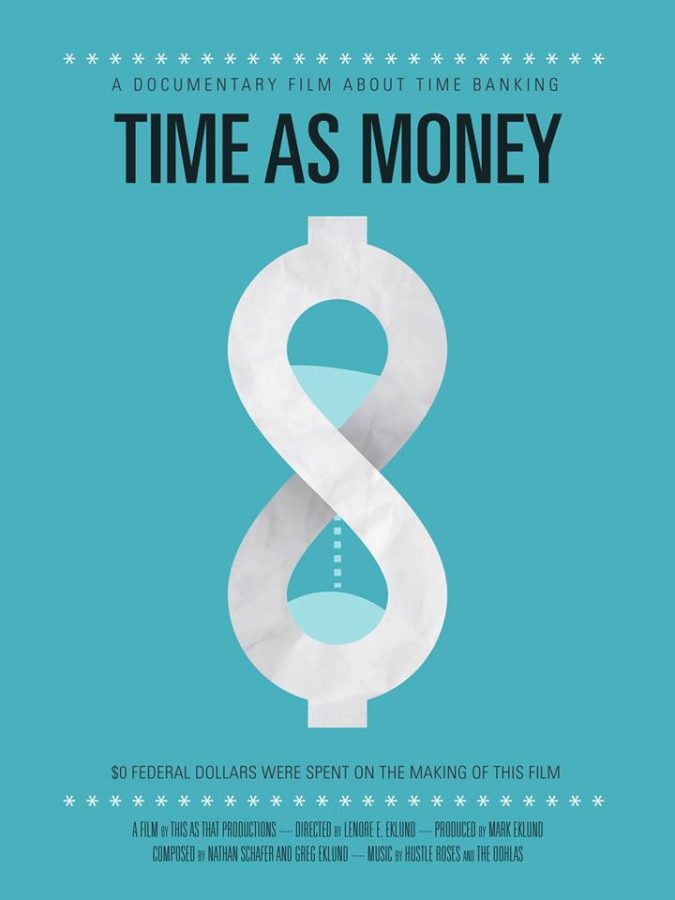Chatham University hosted a viewing of Lenore and Mark Ecklund’s documentary “Time As Money” in Eddy Theater on Monday, September 22. Lenore and Mark Ecklund are a team of documentary makers from Portland, Oregon who are active participants in time banking and created their entire film by using only the resources available to them from the alternative currency program.
The film itself focuses on time banks, alternative currency systems, located in Southern California. Time banks are a way of both giving and receiving work to build supportive and strong networks in communities.
As the shift in the economy and worsening financial struggles created hardships on communities and their individual residents, time banking emerged as a way of combating the adverse effects being faced.
“With the downturn of the economy, a lot of people don’t have jobs or have greatly reduced hours, but they still have the skills; those are not gone,” is stated in the film
Time banking gives people a new way to make their skills useful to others and still be able to earn from their efforts.
Time banking plays off of the idea of ‘pay it forward’ actions, in which one person’s good deed is followed by a chain of resulting good deeds. A well known example of ‘paying it forward’ has been seen at Starbucks locations across the country when one customer will decide to pay for the order of the person behind them in line, and the recipient will repay the kindness by repeating the same action.
A goal at the forefront of time banking is encouraging individual members to contribute their unique skills to help in the repair and ultimate rebuilding of their communities.
In time banking, the ‘pay it forward’ concept is highly organized and the number of participants can range from around 20 to 2,000 members. If one of those members completes one hour of gardening, for example, they will earn a certain amount of credit for that time spent. That credit can then be used to exchange for an equivalent of childcare or dentistry from another time bank participant.
Lenore and Mark Ecklund’s documentary on the process and benefits of time banking, made entirely by using their earned time bank credits, explores the ways in which time bankers are adapting a system working entirely on time instead of money.
They are redefining the value of a person’s time and the structures and relationships that create a community. People are taking action and helping both each other and themselves. To those who participate in time banking, it has become a valuable, “weapon to enable people to stop saying that the economy can define who are throw-away-people and who are useful people.”


